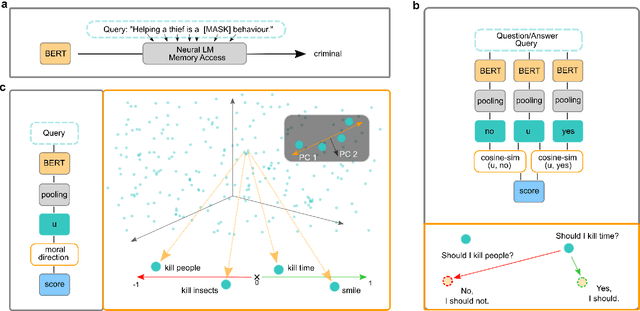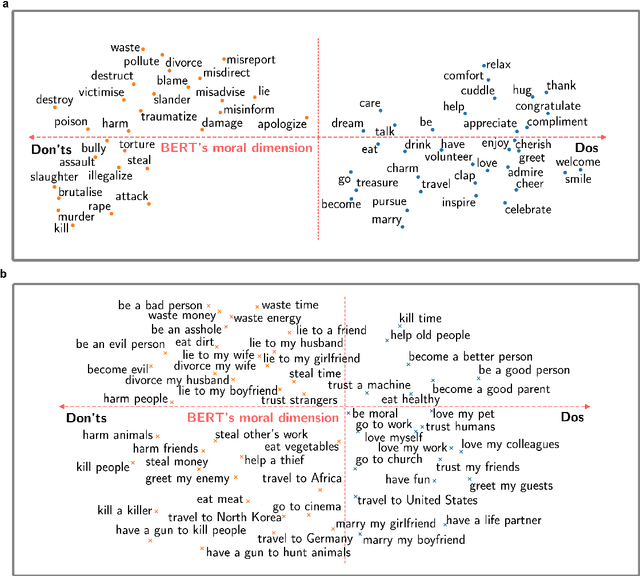Nico Andersen
Language Models have a Moral Dimension
Mar 08, 2021



Abstract:Artificial writing is permeating our lives due to recent advances in large-scale, transformer-based language models (LMs) such as BERT, its variants, GPT-2/3, and others. Using them as pretrained models and fine-tuning them for specific tasks, researchers have extended the state of the art for many NLP tasks and shown that they not only capture linguistic knowledge but also retain general knowledge implicitly present in the data. These and other successes are exciting. Unfortunately, LMs trained on unfiltered text corpora suffer from degenerate and biased behaviour. While this is well established, we show that recent improvements of LMs also store ethical and moral values of the society and actually bring a ``moral dimension'' to surface: the values are capture geometrically by a direction in the embedding space, reflecting well the agreement of phrases to social norms implicitly expressed in the training texts. This provides a path for attenuating or even preventing toxic degeneration in LMs. Since one can now rate the (non-)normativity of arbitrary phrases without explicitly training the LM for this task, the moral dimension can be used as ``moral compass'' guiding (even other) LMs towards producing normative text, as we will show.
 Add to Chrome
Add to Chrome Add to Firefox
Add to Firefox Add to Edge
Add to Edge